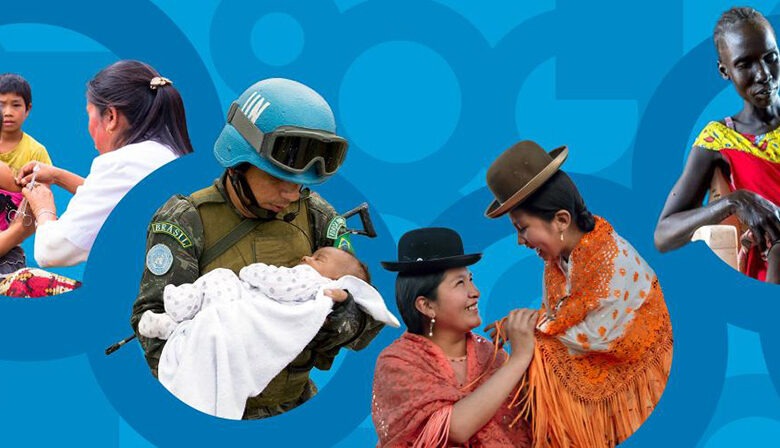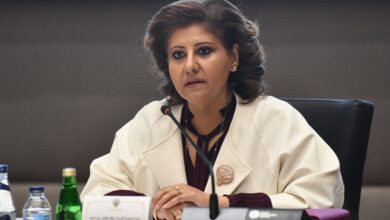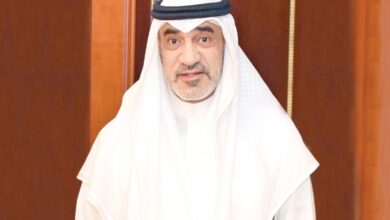UN at 80, a Force for Good for ‘We the Peoples’

The Times Kuwait Report
United Nations Day, on 24 October, marks the anniversary of the entry into force of the UN Charter, the constitutional document that established the United Nations in 1945, following the end of World War II. The Charter, which begins with, ‘We the Peoples of the United Nations…’ reflects the determination and resolve of the global community to promote the purposes and principles anchoring the United Nations.
Among others, the UN Charter calls for maintaining international peace and security, developing friendly relations among nations, and achieving international cooperation to solve economic, social, cultural, and humanitarian challenges. The UN Charter also entails promoting human rights and fundamental freedoms for all without distinction. Since its inception, the Charter has served to harmonize the actions of nations in attaining the purposes of founding the United Nations.
Following the end of the Cold War and the breakup of the former Soviet Union in the 1990s, the UN found itself going through a crisis of identity, with questions raised about its relevance in a world where peace prevailed and the world stood under a largely unified, albeit unipolar, umbrella.
But rather than winding down its activities, the ensuing decades have witnessed a surge in UN engagements in near-about every aspect of human development.
Besides addressing regional conflicts through peace-making and peace-keeping efforts, UN agencies were promoting social, economic, political and environmental initiatives worldwide. Everything, from enhancing availability of food, water, health, education and employment, to fostering democracy, good governance, gender-equality, and sustainable development, as well as protecting global migration and mitigating climate change, came under the UN ambit.
Kuwait has been a member of the United Nations since May 1963, when it became the 111th member of the world body. Since then, Kuwait has been a strong proponent of the UN, committed to the principles outlined in the UN Charter, and an active participant in its many activities, including in maintaining peace and security, and in humanitarian initiatives.
Kuwait’s relationship with the UN were shaped by the geopolitical forces that prevailed at the time of the country’s independence in 1962, and were further solidified in the aftermath of the 1990 Iraqi invasion. Today, the UN House in Kuwait City, which encompasses the offices of more than 20 UN entities, reflects Kuwait’s commitment to supporting UN activities in development, diplomacy, and in humanitarian work.
Last week, while speaking at the 80th anniversary commemoration of UN Day, the UN Resident Coordinator in Kuwait, Ghada Hatim Eltahir, expressed gratitude to Kuwait for its enduring commitment to multilateralism, peace and sustainable development and firm support to the United Nations. She added that “Kuwait’s voice carries unique weight, coming from a country that appreciates, from its own history, that international solidarity can restore peace and sovereignty. This belief continues to shape Kuwait’s identity today as a global humanitarian center and a beacon of multilateral cooperation.”
However, the UN’s institutional architecture, anchored in the post-1945 landscape —with its emphasis on sustaining global peace and security, and its subservience to the veto wielded by its Security Council—has limited the ability of the UN to perform its multifarious operations effectively. Buffeted by evolving challenges, many of them catalyzed by geopolitics, new technologies, economic upheavals, and social changes unique to the 21st century, the UN has struggled to keep pace.
Experts argue that the simultaneous involvement on multiple-fronts has spread-thin the resources of the UN to the point that it no longer has the resources and financing to deliver effective responses in many of the fields it is engaged in. The realization that the UN cannot solve all of humanity’s problems all of the time, has led to calls for a rethink and refocus on the core principles of the world body, and for organizational reforms to align it with prevailing realities.
The argument that a return to the core mandate of preventing conflicts and fostering, maintaining, and promoting peace, without resorting to coercion and use of force, is what will keep the UN relevant and effective going into the future, is at best, naive. Given the multiple challenges facing the world today, returning the UN to a narrow focus on maintaining peace and security alone is not only unpragmatic, but also runs counter to the principles vested in the UN.
While promoting peace, resolving conflicts and peacekeeping continue to be among the UN’s primary tasks, and are often its most visible efforts, these activities constitute only one of the pillars of the UN Charter. Promoting economic and social progress and development, and fostering respect for human rights and fundamental freedoms, are also key mandates of the UN Charter. It is in pursuit of these directives that the UN has engaged in a multiplicity of fields and activities aimed at enhancing the lives of people everywhere.
Criticisms of the UN and its real, or alleged, shortcomings and inefficiencies, tend to be amplified during crises, and in political scapegoating exercises. But these reproaches often ignore the fact that the UN is a consensus-based body that relies on the political will of all member-states. It is largely the result of this consensus-seeking, as well as the partisan politics of the five veto-wielding Security Council members, that have curbed the effective functioning of the UN.
Moreover, the primacy of the Charter also rests in all member-states adhering to the principles and values enshrined in the Charter, including collaboration among members to develop coherent strategies and exert concerted efforts to confront common challenges facing humanity. But, as the prevailing geopolitical turmoil and polarization makes clear, the commitment of the international community to the UN Charter, and to global solidarity is, more than ever, sorely lacking today.
The deficit of cohesiveness is evident in the functioning of the United Nations General Assembly (UNGA), the main deliberative, policymaking, and representative organ of the UN. This year’s UNGA, held from 9–29 September and organized under the theme of ‘Better Together: 80 years and more for peace, development and human rights’. reflected the prevailing global sentiment that multilateralism is essential to effectively tackle most of today’s challenges.
More than 190 member states sent their leaders or top representatives to the 80th session of the UNGA. If turning up is all that matters, then the popularity of the forum with world leaders implies that the UN remains a politically relevant, capable entity. But when measured by its ability to implement impactful solutions to critical global challenges, the bereft of cohesiveness among members has often made the UN’s responses suboptimal.
Nevertheless, in an increasingly polarized world, amid an increase in multilateral challenges and a decrease in multilateral solutions, the UN remains the world’s only truly universal global organization. Faced with deepening global schisms, a sharp US U-turn to unilateralism, and funding challenges, the outlook for any collective actions and reforms to the UN may look bleak. But the UN at 80 is still the world’s best hope for pushing forward the ideals, principles, and goals of the UN Charter, and the Universal Declaration of Human Rights.
The enduring achievement of the UN is that it still works. The broad-based legitimacy, the unrivaled convening power, the breadth of its remit, and its normative impact, makes the UN a singular and indispensable global organization, relevant to all 193 member-states, in addressing the transnational challenges that cannot be resolved by any one country alone.
In his message on the UN turning 80, UN Secretary-General António Guterres noted that the United Nations is more than an institution, “It is a living promise spanning borders, bridging continents, inspiring generations. For eighty years, we have worked to forge peace, tackle poverty and hunger, advance human rights, and build a more sustainable world, together…
“Confronted by challenges of staggering scale, this is no time for timidity or retreat. Now, more than ever, the world must recommit to solving problems no nation can solve alone. On this UN Day, let’s stand together and fulfil the extraordinary promise of your United Nations. Let’s show the world what is possible when ‘we the peoples’ choose to act as one.”












